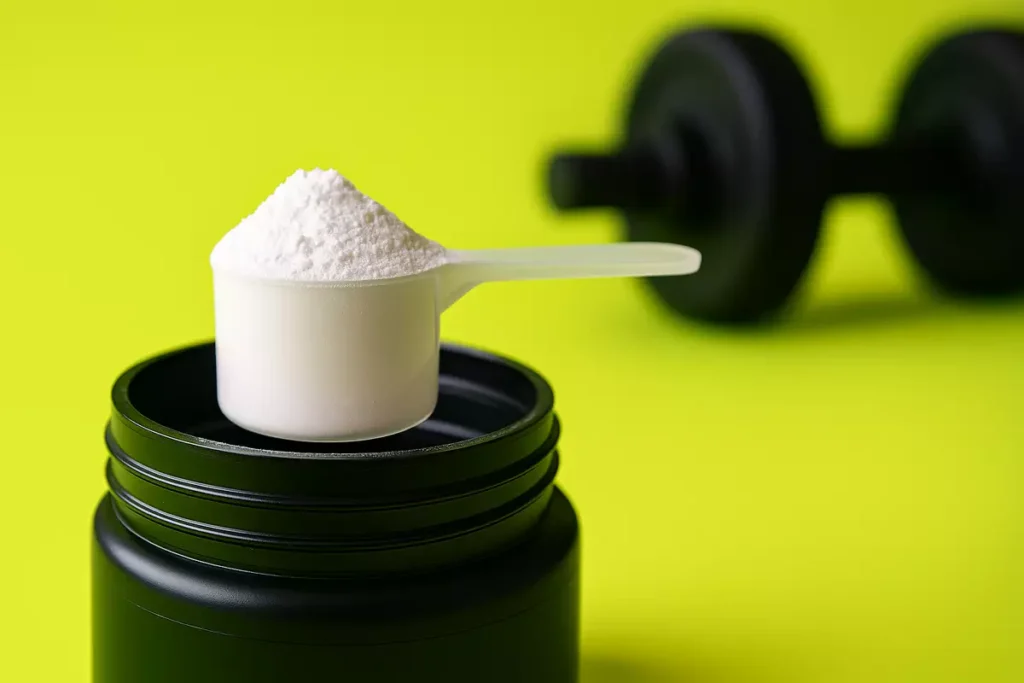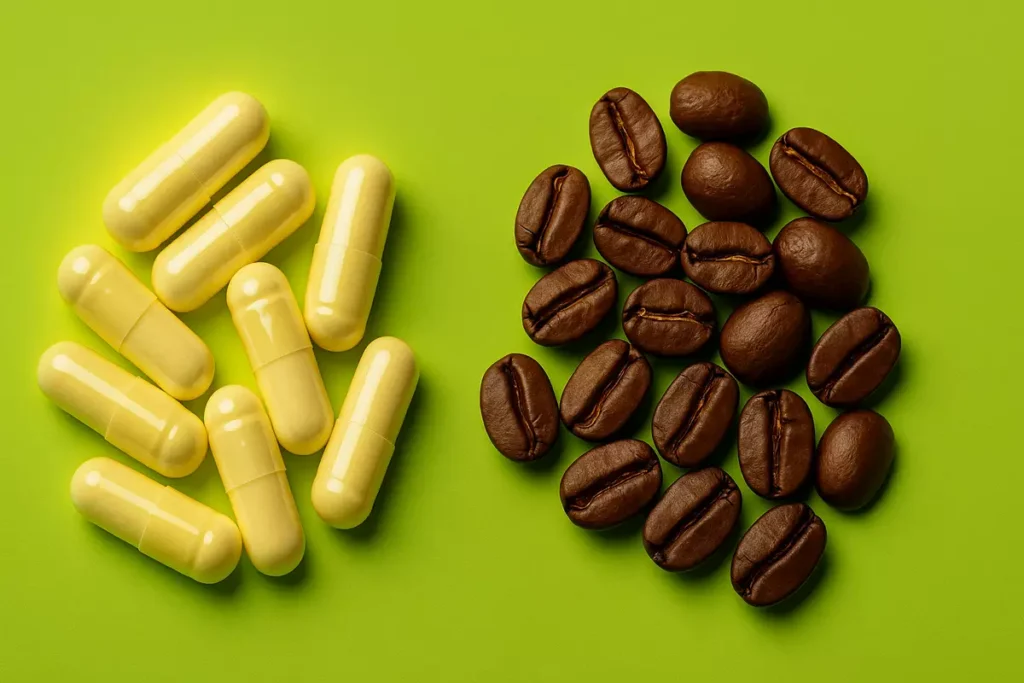Caffeine is the secret weapon for many athletes—but not all caffeine is created equal.
Whether you’re lifting heavy, chasing a new PR, or grinding through a long run, the type of caffeine you choose can make or break your performance.
In this guide, we’ll break down caffeine anhydrous vs natural caffeine, reveal which works best for workouts, and share real-life results from my own training and coaching.
Table of contents
Quick Answer
When it comes to boosting workout performance, caffeine anhydrous hits faster and harder. That’s why it’s my go-to for heavy strength training or explosive workouts.
Natural caffeine, on the other hand, gives a smoother, more sustained lift in energy—perfect for endurance or moderate-intensity training.
If you want to dive deeper into how caffeine affects strength and endurance, check out this guide on caffeine benefits for strength and endurance and how caffeine improves athletic performance.
What is Caffeine Anhydrous?

Caffeine anhydrous is dehydrated caffeine, usually extracted from coffee beans or tea leaves, then processed into a concentrated powder.
You’ll often find it in pre-workout supplements, fat burners, or standalone capsules. Because it’s concentrated and quickly absorbed, it delivers a more intense and rapid boost compared to sipping a cup of coffee.
What is Natural Caffeine?
Natural caffeine comes from whole food and drink sources like coffee, green tea, guarana, or yerba mate.
It’s paired with naturally occurring compounds—like antioxidants and polyphenols—that can slightly change how your body absorbs and reacts to it. This can make the energy release steadier and more gradual.
Key Differences

- Absorption Speed: Anhydrous works faster—often within 20–30 minutes. Natural caffeine takes longer to kick in, around 45–60 minutes.
- Potency: Milligram for milligram, anhydrous is more potent because it’s pure and measured precisely.
- Extra Compounds: Natural caffeine sources often provide antioxidants and other plant compounds that may offer health benefits beyond stimulation.
If you’re curious about how caffeine interacts with metabolism and fat loss, you’ll like this caffeine and metabolism fat-burning guide.
Performance Impact in Workouts
For me, caffeine anhydrous feels like flipping a switch. On a heavy deadlift day, I took 200 mg about 30 minutes before training and hit my working sets with more aggression and focus.
My heart rate climbed faster, and I was fully “locked in” from the first set.
With natural caffeine, it’s a different story. Before a two-hour hiking trip, I had a medium black coffee and felt steady energy for the whole climb. No jitters, no crash—just consistent endurance.
From clients, I’ve seen similar patterns. Markus, a sprinter I coached, felt sharper starts with anhydrous. Emily, who was training for a half-marathon, performed best with natural caffeine for a balanced pace.
For more on how caffeine influences focus, see this caffeine and L-theanine focus guide.
Side Effects & Tolerance

Anhydrous can cause jitters or a racing heartbeat if taken on an empty stomach or in high doses. I’ve felt this myself during early morning sessions when I forgot to eat first.
Natural caffeine is gentler, but drinking too much coffee before training has upset my stomach in the past.
If you’re wondering whether caffeine is better before or after food, here’s a guide on taking caffeine with or without food before the gym.
Tolerance is another factor—if you use high doses daily, your body adapts, and the effects fade. To keep your intake safe, read this caffeine safe dosage guide for athletes.
When to Choose Which
- Caffeine Anhydrous: Best for short, high-intensity training like heavy lifting, sprinting, or HIIT.
- Natural Caffeine: Ideal for long-duration workouts, endurance sports, or days you want smoother energy.
Khalid, a powerlifter I worked with, broke his squat PR after switching to a pre-workout with anhydrous.
On the other hand, I’ve seen endurance athletes struggle with anhydrous jitters but thrive on natural caffeine from tea or coffee.
For tips on evening workouts and caffeine timing, see this caffeine and sleep guide.
Final Recommendation
For beginners, start with 100–150 mg of anhydrous or 150–200 mg from natural sources.
Experienced lifters can handle higher doses, but cycling caffeine every few months helps keep the effects strong.
If you want quick, intense focus—go with caffeine anhydrous. If you prefer steady energy with fewer side effects—stick to natural caffeine.
Personally, I rotate between both, matching the source to the workout style and intensity.



Leave a Reply